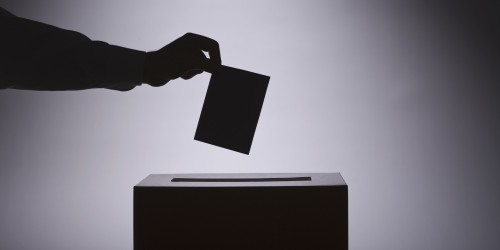Monday, January 16, 2017

The weekend was awash with excellent comments, and this one, from three days ago, was inadvertently left on the runway. It begins with a quote from Pennagain’s COTD from 1/13, and continues boldly, as last year’s Commenter of the Year often does, into a related but different issue. The original topic was race relations in the U.S., and President Obama’s fantasy that they have improved under his stewardship.
The comment also has the immense virtue of not invoking Donald Trump in any way.
Here is Humble Talent’s Comment of the Day on the post, “Comment of the Day: Signature Significance: President Obama’s Farewell Speech Jumbo””
“Meanwhile, back in the ghetto, Black Lives Matter gets a firm grip on the larger – and ever-growing larger – black underclass, those who couldn’t “discuss” their beliefs if they wanted to.”
That’s actually a very salient point, one that isn’t unique to any particular demographic, and that I think needs addressing.
I won’t even hazard a statistic, but I believe it to be likely that the vast majority of Americans (And Canadians, we aren’t immune) don’t actually understand politics, economics, or the law in much more than a cursory manner. I don’t think the average person at any protest would be able to with even a bird-taking-its-first-flight bumbling grace put into words the feelings that have them attending their event.
The language, I think, of Joe Protester is that of fear. Fear of authority, fear of corruption, fear of lethal forces, fear of economic hardship… They don’t know what the answer is, hell, they might not even know what the problem is, they might not even identify their feelings as fear. They just have feelings, and feel a need to do something about them.
It’s their right to do so, and I’d never say otherwise. But there’s a danger here… I find myself often drawn to the corrupting influence of having people agree with me. This might sound ridiculous, but it isn’t… If these people around me are those fearful people that don’t know what the answer is, don’t know what the problem is, and have feelings that just so happen to align with mine, it’s… hard…. to resist getting caught up in the tide and carried on to other positions those people have, just as ill informed, that I might not have come to on my own.
While the possibility of this is absolutely prolific on both sides of the argument, I think (and I’m sure I’ll get disagreement on this) that this kind of thought permeates the left more frequently than the right… I think that for two reasons:
First: The left often bribes their voters. Year over year, study after study shows that financial problems top people’s anxiety lists. More than terrorism, More than discrimination, More than death (sometimes, death usually wins.). And both of the parties have an answer for that! From the right, they say that reducing taxes will create jobs, and throttling immigration will reduce competition for those jobs. From the left, they say that they’ll do things like increase the minimum wage, regulate companies to pay better benefits, and lower welfare requirements. The reason I think that the left has a more appealing (if less convincing) case is because people are biased towards laziness and entitlements are much easier to collect than work is to earn.
Second: It’s the logical following of an assumption. I assume that people who vote disproportionately have a deeper understanding of politics, economics and the law, because they understand the importance of those things and the effect voting has on them. The flipside of this is that people who don’t vote will disproportionately not understand politics, economics, or law, because they don’t understand the importance of them, and choose not to participate. The reason I think this proves that the prevalence of low-information voters is more prevalent on the left is the simple fact that the left tends to do better when voter turnout is higher: The logic applied being that when voter turnout is low, it’s because the left stayed home, and the assumption is that people that stay home probably tend to be less informed than people who show up. This is reinforced by phenomena such as a real trend for right-leaning politicians to underpoll their left-leaning counterparts in relation to votes cast (The assumption being the non-voter didn’t mind answering the phone, but couldn’t be bothered to vote).
This is actually not a negative outcome, by the way… on the contrary. While some might say that the majority of the people want the left leaning candidate, and they’d be right, I’d argue that they don’t want it enough to actually show up to vote, and that’s good, because their vote is probably disproportionately the product of ignorance. It follows that I think mandatory voting is generally a bad idea. Voluntary voting naturally self-selects against populations that don’t add depth to the process, without infringing on their rights.
People far too often are far too noisy about things they don’t understand, but at least we can take solace in the fact that their lack of understanding will tend to push them out of the process where their ignorance could effect me.